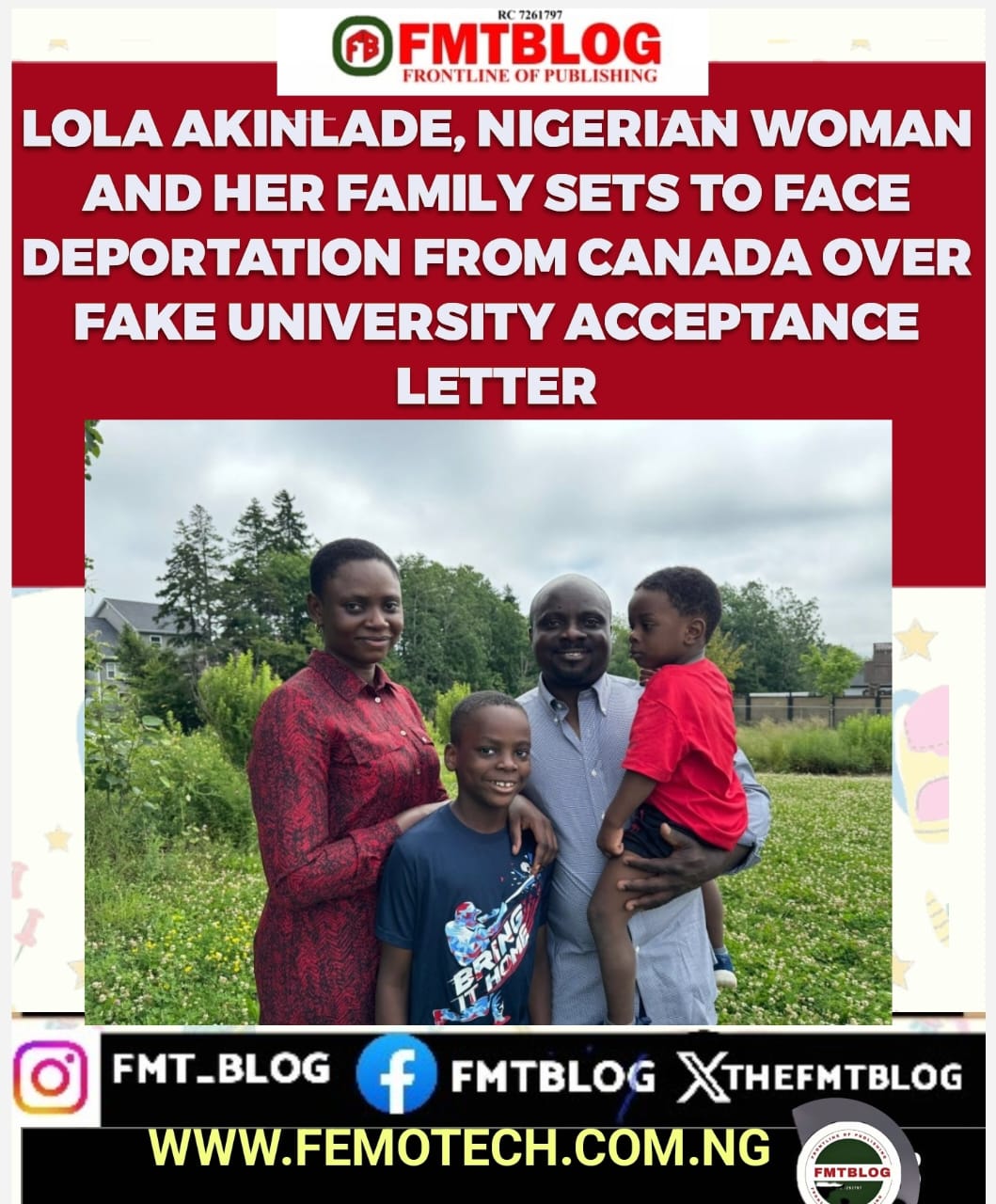
Lola Akinlade, a Nigerian woman, and her family are at risk of deportation from Canada after it was revealed that she utilized a fraudulent university acceptance letter to obtain a study and work permit.

The future hangs in the balance for a Nigerian family facing deportation from Canada due to a fraudulent university acceptance letter.
Lola Akinlade and her family are at risk of deportation since it came to light that her university acceptance letter, which was used to obtain a study and work permit, was counterfeit.
The discovery blindsided Lola, a Nova Scotia Community College graduate in 2019. She learned about the fraudulent letter just weeks before graduating when she received a notification from Immigration, Refugees and Citizenship Canada (IRCC).
The revelation has left her family in a vulnerable position with no immigration status and limited resources should they be deported back to Nigeria.
The IRCC started scrutinizing international student acceptance letters in December 2023 and, since then, has identified more than 9,000 fraudulent cases, putting Akinlade’s case in a broader perspective.
Akinlade pleads for the IRCC to reconsider her case, maintaining that she was taken advantage of by an “unscrupulous agent” who provided her with a bogus acceptance letter.
She recounts having consulted an immigration agent in Lagos, who took care of her application for a master’s degree in business administration in Canada.
The agent also gave her a study permit, plane tickets, and the falsified acceptance letter to the University of Regina. Upon her arrival in Canada, she was notified that the university had no available spots, prompting her to enroll in a new program at Nova Scotia Community College.
 Lola Akinlade and her lovely family
Lola Akinlade and her lovely family
Adegoke, the agent who assisted Akinlade, claims to have sourced the acceptance letter from Success Academy Education Consult. He contends he was oblivious to the fraudulent nature of the letter and lost touch with the company post-2018.
This incident led to Akinlade losing her study permit, and subsequent attempts to secure a post-graduate work permit and a temporary resident permit were unsuccessful.
Her husband and children were also stripped of their temporary resident status, which disabled them from working or attending school. Akinlade’s attorney is filing a humanitarian application as a last resort to secure the family’s stay in Canada.
The plight of the Akinlade family underscores the hazards tied to dependence on agents for immigration procedures. Amanat Sandhu, the family’s attorney, pointed out that many immigrants face challenging situations because of “unscrupulous agents” disseminating false information.
Canadian institutes, including universities in Canada, have expressed concern over the actions of these agents. Graham Barber, assistant director of international relations at Universities Canada, spoke of incidents where students land on the campus under the false impression of being enrolled.
The Akinlades face a murky future in Canada with the threat of deportation hanging over their heads. They have been subsisting on their savings while unable to work or attend school.
Sandhu, their attorney, stressed the importance of handling immigration procedures independently and avoiding agents. Despite their struggles, the family remains hopeful that the humanitarian application will permit them to stay in Canada.



